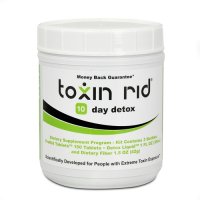Guidelines For Reporting and Writing About People with Disabilities
Guidelines For Reporting and Writing About People with Disabilities
Copyright 1996, FIFTH EDITION This web page contains partial information on the “Guidelines.” For a complimentary brochure with the complete list, please send a stamped self-addressed envelope to RTC/IL Publications, University of Kansas, 4089 Dole Bldg., Lawrence, KS, 66045.
The “Guidelines” are available in large print, Braille, and Spanish.) [$.35 per brochure 1-100 (brochures) plus S & H; $.30 per brochure 101-1000 (brochures) plus S & H; $.27 per brochure for orders of 1001 or more plus S & H]
Here is a set of clear guidelines to help you make better choices in terms of language and portrayal. The “Guidelines” explain preferred terminology and offer suggestions for appropriate ways to describe people with disabilities. They reflect input from over 100 national disability organizations and have been reviewed and endorsed by media and disability experts throughout the country. Although opinions may differ on some terms, the “Guidelines” represent the current consensus among disability organizations. Portions of the “Guidelines” have been adopted into the “Associated Press Stylebook”, a basic reference for professional journalists.
Please use the “Guidelines” when you write or report about people with disabilities. If you would like more information, additional copies of the “Guidelines”, or an attractive 14×20 poster of disability writing style “do’s” and “don’ts” contact: Publications, Research and Training Center on Independent Living, 4089 Dole Bldg., University of Kansas, Lawrence KS 66045. You can also contact our Center by e-mail:[email protected], phone: 913-864-4095 (voice/TTY), or by fax: (913-864-5063).
Information about ordering the “Guidelines” is also listed in our free catalog and on the World Wide Web under RTCIL
Please consider the following when writing about people with disabilities.
DO NOT FOCUS ON DISABILITY unless it is crucial to a story. Avoid tear-jerking human interest stories about incurable diseases, congenital impairments, or severe injury. Focus instead on issues that affect the quality of life for those same individuals, such as accessible transportation, housing, affordable health care, employment opportunities, and discrimination.
DO NOT PORTRAY SUCCESSFUL PEOPLE WITH DISABILITIES AS SUPERHUMAN.Even though the public may admire superachievers, portraying people with disabilities as superstars raises false expectations that all people with disabilities should achieve this level.
DO NOT SENSATIONALIZE A DISABILITY by saying afflicted with, crippled with, suffers from, victim of, and so on. Instead, say person who has multiple sclerosis or man who had polio.
DO NOT USE GENERIC LABELS for disability groups, such as “the retarded,” “the deaf.” Emphasize people not labels. Say people with mental retardation or people who are deaf.
PUT PEOPLE FIRST, not their disability. Say woman with arthritis, children who are deaf, people with disabilities. This puts the focus on the individual, not the particular functional limitation. Because of editorial pressures to be succinct, we know it is not always possible to put people first. If the portrayal is positive and accurate, consider the following variations: disabled citizens, nondisabled people, wheelchair-user, deaf girl, paralyzed child, and so on. Crippled, deformed, suffers from, victim of, the retarded, infirm, the deaf and dumb, etc. are never acceptable under any circumstances.
EMPHASIZE ABILITIES not limitations. For example: uses a wheelchair/braces, walks with crutches, rather than confined to a wheelchair, wheelchair-bound, or crippled. Similarly, do not use emotional descriptors such as unfortunate, pitiful, and so forth.
Disability groups also strongly object to using euphemisms to describe disabilities. Terms such as handicapable, mentally different, physically inconvenienced, and physically challenged are considered condescending. They reinforce the idea that disabilities cannot be dealt with up front.
DO NOT IMPLY DISEASE when discussing disabilities that result from a prior disease episode. People who had polio and experienced after effects have a postpolio disability. They are not currently experiencing the disease. Do not imply disease with people whose disability has resulted from anatomical or physiological damage (e.g., person with spina bifida or cerebral palsy). Reference to disease associated with a disability is acceptable only with chronic diseases, such as arthritis, Parkinson’s disease, or multiple sclerosis. People with disabilities should never be referred to as patients or cases unless their relationship with their doctor is under discussion.
SHOW PEOPLE WITH DISABILITIES AS ACTIVE participants of society. Portraying persons with disabilities interacting with nondisabled people in social and work environments helps break down barriers and open lines of communications.
Listed below are preferred words that reflect a positive attitude in portraying disabilities:
Brain injury. Describes a condition where there is long-term or temporary disruption in brain function resulting from injury to the brain. Difficulties with the cognitive, physical, emotional, or social functioning may occur. Use person with a brain injury, woman who has sustained brain injury, or boy with an acquired brain injury.
Cleft lip. Describes a specific congenital disability involving lip and gum. The term hare lip is anatomically incorrect and stigmatizing. Use person who has a cleft lip or a cleft palate.
Deaf. Deafness refers to a profound degree of hearing loss that prevents understanding speech though the ear. Hearing impaired and hearing loss are generic terms used by some individuals to indicate any degree of hearing loss–from mild to profound. These terms include people who are hard of hearing and deaf. However, some individuals completely disfavor the term hearing impaired. Others prefer to use deaf or hard of hearing. Hard of hearing refers to a mild to moderate hearing loss that may or may not be corrected with amplification. Use women who is deaf, boy who is hard of hearing, individuals with hearing losses, people who are deaf or hard of hearing.
Disability. General term used for a functional limitation that interferes with a person’s ability for example, to walk, lift, hear, or learn. It may refer to a physical, sensory, or mental condition. Use as a descriptive noun or adjective, such as person living with AIDS, woman who is blind. or man with a disability. Impairment refers to loss or abnormality of an organ or body mechanism, which may result in disability.
Disfigurement. Refers to physical changes caused by burn, trauma, disease, or congenital problems.
Down syndrome. Describes a chromosome disorder which usually causes a delay in physical, intellectual, and language development. Usually results in mental retardation. Mongol or mongoloid are unacceptable.
Handicap. Not a synonym for disability. Describes a condition or barrier imposed by society, the environment, or by one’s own self. Some individuals prefer inaccessible or not accessible to describe social and environmental barriers. Handicap can be used when citing laws and situations but should not be used to describe a disability. Do not refer to people with disabilities as the handicapped or handicapped people. Say the building is not accessible for a wheelchair-user. The stairs are a handicap for her.
HIV/AIDS. Acquired immunodeficiency syndrome is an infectious disease resulting in the loss of the body’s immune system to ward off infections The disease is caused by the human immunodeficiency virus (HIV). A positive test for HIV can occur without symptoms of the illnesses which usually develop up to 10 years later, including tuberculosis, recurring pneumonia cancer, recurrent vaginal yeast infections, intestinal ailments, chronic weakness and fever and profound weight loss. Preferred: people living with HIV people with AIDS or living with AIDS.
Mental disability. The Federal Rehabilitation Act (Section 504) lists four categories under mental disability: psychiatric disability, retardation, learning disability, or cognitive impairment is acceptable.
Nondisabled. Appropriate term for people without disabilities. Normal, able-bodied, healthy, or whole are inappropriate.
Seizure. Describes an involuntary muscular contraction, a brief impairment or loss of consciousness, etc. resulting from a neurological condition such as epilepsy or from an acquired brain injury. Rather than epileptic, say girl with epilepsy or boy with a seizure disorder. The term convulsion should be used only for seizures involving contraction of the entire body.
Spastic. Describes a muscle with sudden abnormal and involuntary spasm. Not appropriate for describing someone with cerebral palsy or a neurological disorder Muscles are spastic, not people.
Stroke. Caused by interruption of blood to brain. Hemiplegia (paralysis on one side) may result. Stroke survivor is preferred over stroke victim.
The RTC/IL acknowledges NIDRR for providing funds to develop the first edition of the “Guidelines”.
PARTIAL LIST OF ENDORSEES
ACCENT ON LIVING MAGAZINE, BLOOMINGTON, IL
ADVOCATES FOR CHILDREN, NEW YORK, NY
ADVOCATES FOR PERSONS WITH DISABLING CONDITIONS IN ALLIED HEALTH, CHICAGO, IL
AIDS ACTION COUNCIL, WASHINGTON, DC AMERICAN ASSOCIATION FOR THE ADVANCEMENT OF SCIENCE, WASHINGTON. DC
AMERICAN CLEFT PALATE-CRANIOFACIAL ASSOCIATION, PITTSBURGH, PA
AMERICAN COUNCIL FOR THE BLIND, WASHINGTON, DC
AMERICAN SPINAL INJURY ASSOCIATION, CHICAGO, IL
ARTHRITIS FOUNDATION, ATLANTA, GA
COUNCIL FOR ADVANCEMENT & SUPPORT OF EDUCATION, WASHINGTON, DC
DISABLED ABILITY RESOURCE ENVIRONMENT, EL PASO, TX
DISABILITIES RESOURCES, INC., CENTEREACH, NY
DISABILITY RIGHTS EDUCATION AND DEFENSE FUND, BERKELEY, CA
EPILEPSY FOUNDATION OF AMERICA, LANDOVER, MD
GALLAUDET UNIVERSITY, WASHINGTON, DC
GAZETTE INTERNATIONAL NETWORKING INSTITUTE (G.I.N.I.), ST. LOUIS, MO
GOODWILL INDUSTRIES INTERNATIONAL, INC., BETHESDA MD
HUNTINGTON’S DISEASE SOCIETY OF AMERICA, INC., NEW YORK, NY
JOSEPH P. KENNEDY JR. FOUNDATION, WASHINGTON, DC
KIDS ON THE BLOCK, COLUMBIA, MD
LEARNING DISABILITIES ASSOCIATION OF AMERICA, PITTSBURGH, PA
MAINSTREAM MAGAZINE, SAN DIEGO, CA
NATIONAL AMPUTATION FOUNDATION, INC., MALVERNE, NY
NATIONAL ATAXIA FOUNDATION, WAYZATA, MN
NATIONAL BRAIN INJURY ASSOCIATION, WASHINGTON, DC
NATIONAL DOWN SYNDROME CONGRESS, ATLANTA, GA
NATIONAL DOWN SYNDROME SOCIETY, NEW YORK, NY
NATIONAL EMPOWERMENT CENTER, WASHINGTON, DC
NATIONAL INFORMATION CENTER ON DEAFNESS, WASHINGTON, DC
NATIONAL MENTAL HEALTH ASSOCIATION, ALEXANDRIA, VA
NATIONAL ORGANIZATION ON DISABILITY, WASHINGTON, DC
NATIONAL SPINAL CORD INJURY ASSOCIATION, CAMBRIDGE, MA
RRTC on DRUGS AND DISABILITY, DAYTON, OH
THE ARC of THE U.S., ARLINGTON, TX
THE ASSOCIATION FOR PERSONS WITH SEVERE HANDICAPS, (TASH), BALTIMORE, MD
THE DISABILITY RAG & RESOURCE, LOUISVILLE, KY
WORLD INSTITUTE ON DISABILITY OAKLAND, CA
| back to reports |




Leave a Reply